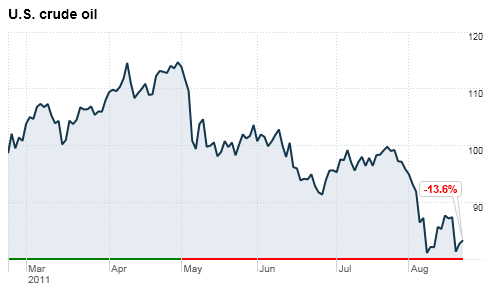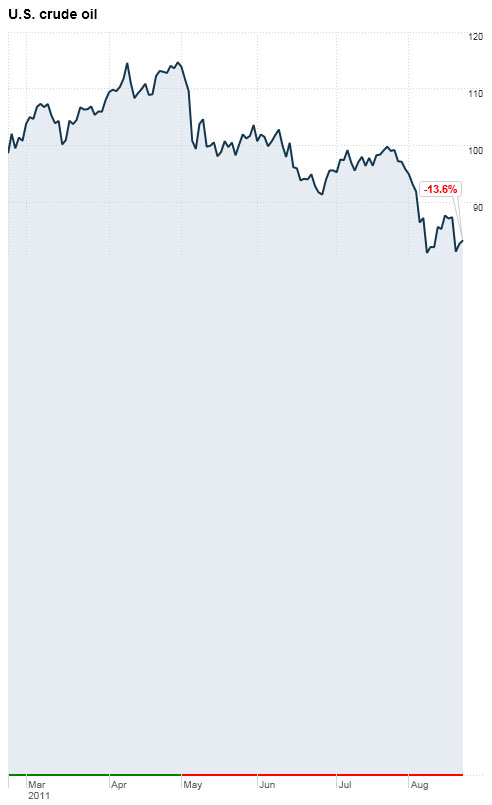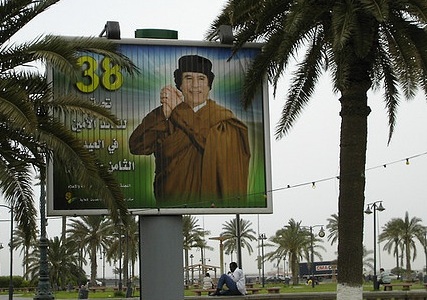It would be natural to imagine that the fall of Tripoli would mean a significant decrease in the cost of oil and the pain that the average consumer feels at the pump. After all, in February, when unrest in Libya commenced, oil prices hit a two-year high. Libya is only the 15th biggest oil exporter in the world, but the oil it exports is of a particularly desirable type.
But the truth is world oil markets couldn't give a big greasy bag of monkey fap how long it takes Libya's oil to come back on-line. Sure, there could be a slight drop in prices — oil in the European market is down 1 percent at the moment. But the fundamental pressure on oil prices is the slow-motion exhaustion of all our cheap sources of crude. Call it peak oil, call it the end of cheap oil, limits to growth, whatever you like: These days, revolution in the Middle East is the least of the pressures on the price of gasoline.
Here's CNNMoney's graph of the oil market's "knee-jerk" reaction to Ghaddafi's fall.

But let's put it in perspective. Here's what the same graph would look like if its origin were zero.

In other words, that’s what it would look like if it reflected the fact that geopolitics no longer drives the price of oil — a reality we have to get hip to if we want to make it out of the 21st century with our quality of life intact.




